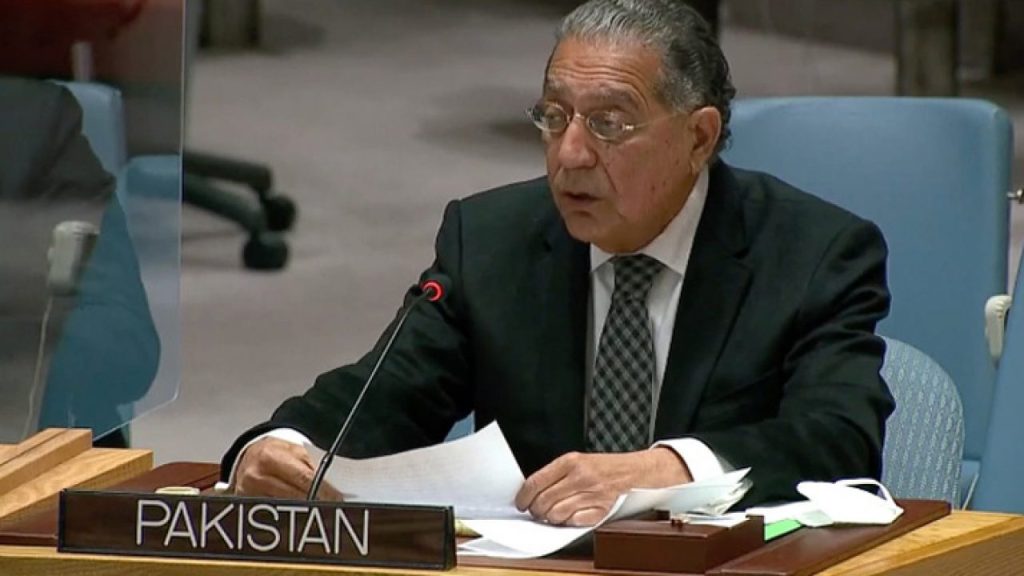UNITED NATIONS: Pakistan’s Ambassador to the United Nations Munir Akram said that reforming the Security Council, mandated to promote global peace, is required reforms as it failed to prevent “the slaughter in Gaza.”
Like Israel in occupied Palestine, Indian 900,000 troops in Indian Illegal Occupied Jammu and Kashmir (IIOJK) suppressing the Kashmiris’ struggle for freedom and referred to some of its leaders using the ominous term “Final Solution” for the region, Munir Akram said in his address to the 15-members UN Security Council.
The reference to Gaza and Israel’s recent actions in the Palestinian territories served as a backdrop to this exchange, with Ambassador Akram criticizing the Security Council’s inability to halt the violence. He called on the General Assembly to take action, demanding an immediate ceasefire in Gaza, unhindered humanitarian access, and the prevention of further displacement.
In response, India’s Ambassador Ruchira Kamboj argued that the reference to Kashmir was not relevant to the day’s discussion in the Security Council.
This prompted a sharp rebuttal from the Pakistani delegate, Gul Qaiser Sarwani, who reiterated the disputed status of Jammu and Kashmir and its relevance to the Security Council’s agenda. Sarwani pointed out that the final disposition of Kashmir should be determined by its people through a United Nations-supervised plebiscite in accordance with Council resolutions.
Addressing UN Security Council Limitations
Ambassador Akram expressed his belief that the Security Council’s limitations could be effectively addressed through increased representation of the United Nations’ diverse membership. He stressed the importance of enhancing the democratic nature of the Council by amplifying the voices of smaller and medium-sized states while making it more accountable through periodic elections.
He attributed the Council’s shortcomings primarily to the veto power held by the five permanent members, namely Britain, China, France, Russia, and the United States. In response to proposals advocating the expansion of permanent members, he expressed his difficulty in comprehending the logic behind such suggestions, alluding to the four countries aspiring to permanent membership: India, Brazil, Germany, and Japan.
Pakistan, along with its allies in the Uniting for Consensus (UfC) group, opposed the idea of expanding the permanent category. Instead, they advocated for the creation of a new category of members, distinct from permanent members, with longer terms and the possibility of re-election.


